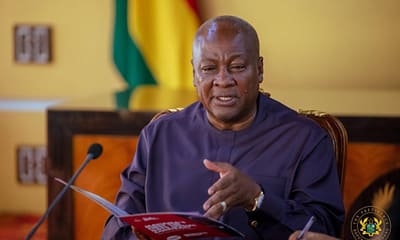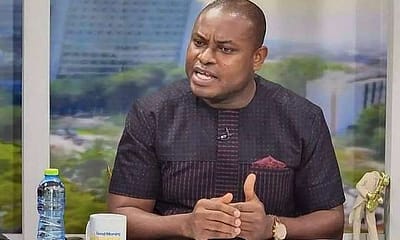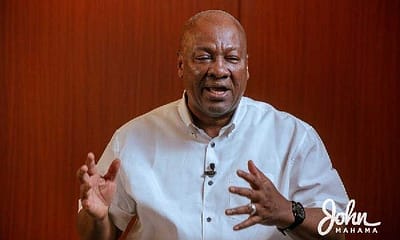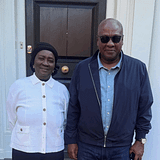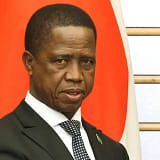News
Mahama Remembers Childhood Days with Asantehene: “They Sent Us for Ice Cream”
Published
6 months agoon
By
M N Ridwan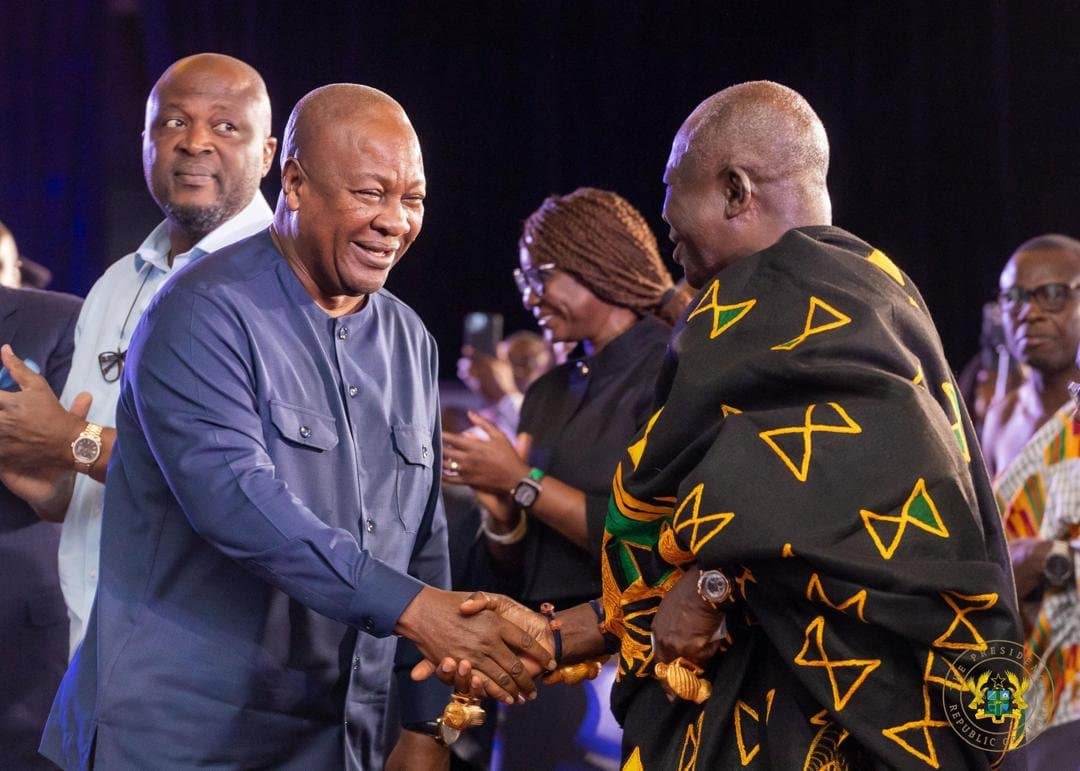
President John Mahama has offered Ghanaians a heartfelt glimpse into his childhood, revealing a special bond with none other than Otumfuo Osei Tutu II, the Asantehene.
Speaking during a courtesy visit by Otumfuo to the Jubilee House on Monday, June 2, Mahama recounted how their friendship began long before either of them imagined holding national leadership roles.
“I was a little boy growing up in Ringway Estates, Osu, and our house was just opposite Nana Aduhene’s,” Mahama said.
“His children—Kojo Botsuo, Kwame Nkrumah, and others—were our friends.”
Among those who would visit Nana Aduhene’s house during school holidays were Ato Ahwoi and Kwame Ahwoi, names now familiar in Ghanaian politics.
But one visitor stood out to young Mahama and his playmates—a boy they affectionately called “Kweku Kweku.”
To their surprise, years later, “Kweku Kweku” would ascend the revered Ashanti throne as Otumfuo Osei Tutu II.
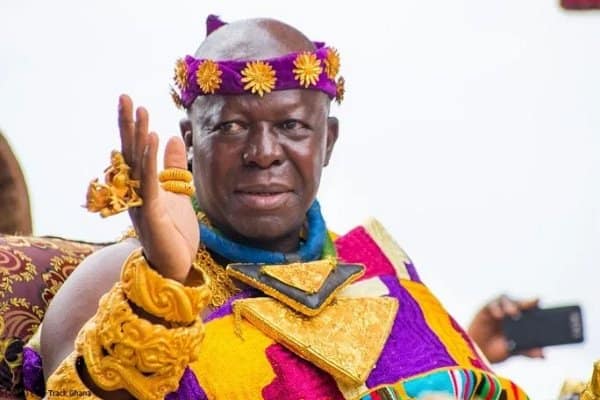
“We never imagined he was royalty. They were older than us and used to send us to buy ice cream and run errands,” Mahama recalled with a laugh.
His recollections painted a picture of genuine childhood camaraderie—of dusty streets, shared meals, and the kind of friendships that quietly shape lives long before titles and offices come into the picture.
What surprised Mahama most was seeing his childhood friend rise to become Asantehene, a role steeped in centuries of tradition and cultural authority.
“When I became a minister and heard he was being enstooled, I said, ‘But this is Aduhene’s boy—from Sefwi! How is he becoming the Ashanti King?’” Mahama said, still amused by the memory.
He later learned that Otumfuo had been sent by his uncle to be groomed for kingship, which explained his regular visits to Ringway.
“Apparently, Omanhene was looking after him to prepare him for leadership,” Mahama explained.
Mahama stressed that their relationship was never built on politics or positions, but on shared roots and mutual respect that began in the unlikeliest of places—among childhood friends on neighborhood errands.
“Our connection goes back to those simple, innocent days,” he said. “And that’s something politics could never create or replace.”
Related News
You may like
No More Takeaway Packs Mahama Plans Styrofoam Ban
Mahama Signs GH¢1 Fuel Levy Into Law
24-Hour Economy or 24-Hour Intimidation? Ahiagbah Questions Mahama
Mahama Sounds Alarm on SHS Indiscipline, Calls for National Unity
Mahama to MMDCEs: Clean Up Your Districts or Lose Your Jobs
Mahama Honors Mothers, Hails VP’s Recovery on Special Day




